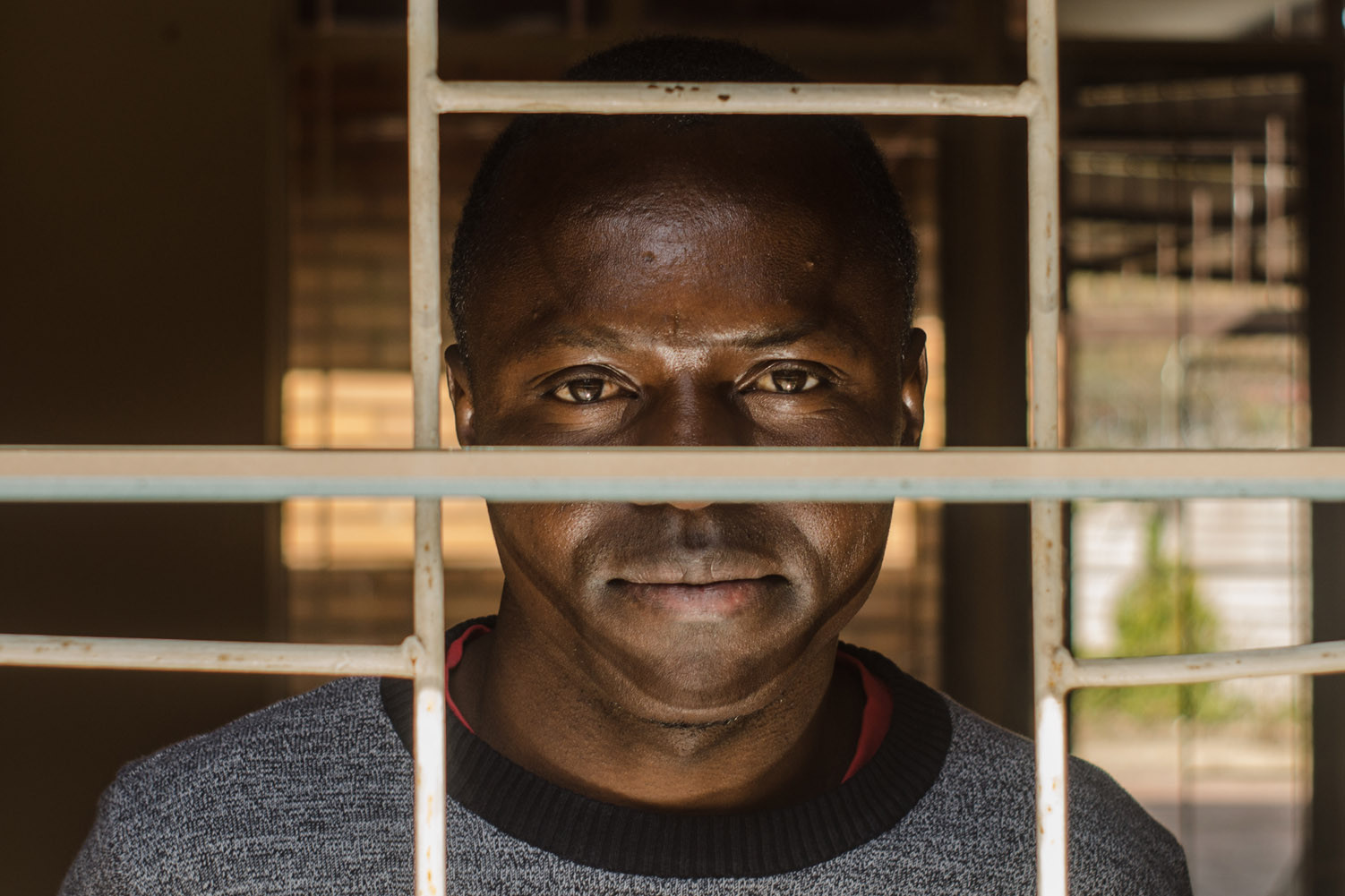Stateless in South Africa
For the past 10 years, Khumbulani Ngubane has been stateless in the country of his birth. Now he’s challenging the department of Home Affairs over his status.
Author:
13 August 2018

Khumbulani Ngubane has been stuck in limbo for the past decade as he waits on the Department of Home Affairs to rule on whether or not he is South African.
Ngubane, 27, who was born in Newcastle in KwaZulu-Natal, moved to Kenya with his mother in 1994. But since his return to South Africa in 2008 after his mother’s death, he has been considered stateless.
His position as one of the estimated 10 million stateless people around the world means he is not considered a national of any country, and won’t be afforded the rights and privileges associated with citizenship.
This has restricted his movement, access to education and work opportunities, and opened him up to countless arrests, including being detained at the Lindela Repatriation Centre for deportation. But with no nationality, Ngubane can’t be deported anywhere, and with no identity documents, his precarious position has also opened him up to intimidation and harassment by law enforcement.
My movement is always limited, my movement is always under threat … I can get arrested by the police at any moment . . . I have lost count of how many times I have been arrested.
“I have often done work for people, but because we didn’t enter into a legal agreement, they refused to pay me,” he said, opening him up to further exploitation. My movement is always limited, my movement is always under threat … I can get arrested by the police at any moment . . . I have lost count of how many times I have been arrested.”
The form 20 document – an interim permit issued until his statelessness has been resolved – he always carries with him is his only form of identification. It describes him as an “illegal foreigner” and an “undesirable person” until his case has been finalised.
Now, in an attempt to get the Department of Home Affairs to make a decision in his case that would allow him to apply for protection from another country should the need arise, Ngubane has attached Minister Malusi Gigaba as a respondent in his personal capacity.
The North Gauteng High Court ruled last month that Gigaba has until 16 August to respond and issue Ngubane with a form 20 document and the right to work. If this does not happen, Gigaba can be held in contempt of court.
However, Gigaba’s spokesperson, Thabo Mokgola, said the court erred in its decision to grant Ngubane a form 20 document and the right to work because he was “illegal”, and because of the “obvious error by the court”, the Department wrote to the judge to amend the ruling.
Mokgola said the Department stood by the view that it had not violated the court order, and that Gigaba was in the process of making his decision on Ngubane’s case. “In the meantime, Mr Ngubane has been furnished with a form 23 to ensure that he is legal in the country,” Mokgola said.
But while the Department waits to finalise his case, Ngubane remains in the same situation he has been in for the past decade. “It really is a struggle. There is no way I can live without work. It is very difficult. I’m not supposed to live like this. It makes me want to ask for resettlement to any country that will take me. I can not further my studies, there is no way I can say I am skilled. Because I don’t have papers, I can’t study,” he said.
Ngubane, who has been living with Echo Youth Development, an NGO north of Pretoria, said he often reads biology and science books in the hope of pursuing a B.Sc degree once his legal status has been sorted out.
I always just keep the hope. For the time being, there is nothing else I can do but hope.
“I always just keep the hope. For the time being, there is nothing else I can do but hope. Sometimes I feel like furniture here, seeing other people come and go at the house, but I just end up staying,” he said.
The NGO’s Sané Lötter described Ngubane as a “loyal” and “hard-working friend” in a report that made up part of his application. “At times he gets extremely frustrated as he has ambition and wishes to work for his own future. Mr Ngubane is a very hard-working man. As he is not able to be employed due to having no form of legal documentation, he has always helped and assisted us at Echo as a deed of appreciation for providing him with housing and care,” she wrote.
Lötter’s report said it wasn’t always easy living at the organisation, but Ngubane has “always tried to make the best of his circumstance and tries to be an example of endurance”.
Ngubane said although he was grateful for the generosity of those at the NGO, he didn’t want to feel dependent on people and would love to pay them back for their generosity. “I am a very ambitious man. I want to be able to follow my own dreams,” he said.
